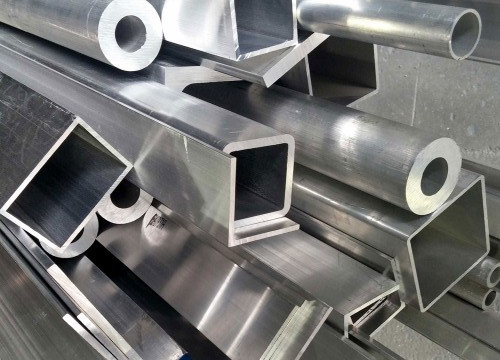
The Aluminum Fencing Guide
Whether you call it aluminum fencing or aluminium fencing, there’s no denying that aluminum is a popular material for a variety of fence systems.
Let’s take a closer look at why you might consider an aluminum fencing system, what the pros and cons of this kind of fence are, what type of aluminum fence you can buy and more.
What Kinds of Aluminum Fence Are There?
There are actually several different kinds of aluminum fencing on the market. The best known is probably aluminum ornamental fence or bar fence, as it’s sometimes known, but you can also get aluminum chain link or diamond mesh fencing.
Where Is Aluminum Fencing Usually Used?
Aluminum fencing is not as strong as steel fences, so it’s usually not used for the highest security fence systems. However, aluminium stands up very well in highly corrosive environments, like near the ocean, so it’s a popular choice where a steel fence might corrode too quickly.
Aluminum fencing is also much lighter than steel fencing – at about 1/3 of the weight of steel of the same volume. So it is often used when weight needs to be kept to a minimum, like fences and railings on balconies or cantilevered buildings.
What Are the Benefits of Aluminum Fencing?
As mentioned, aluminum fencing is light, which makes it great for installations where weight is a factor. It’s also easier to install than a comparable steel fence system because the panels and aluminum fence posts are easier to lift and position.
Aluminum also does not have to be galvanized to protect it from corrosion like steel does, which cuts that cost out of the equation.
Finally, aluminum retains its value much better than steel. When you do eventually remove an aluminum fencing system, you can sell it to metal recyclers and offset the cost of your new fence.
What Are the Drawbacks to aluminium Fencing?
While there are many great reasons why you might choose an aluminum fence system, there are also a few drawbacks you should be aware of.
First, there’s the fact that aluminum is not as strong as steel, which means it is not a good choice for high-security fencing.
Next, there’s the cost. Aluminum costs a lot more than steel, and while it does offer the benefits we’ve mentioned, that might not be enough to make it a worthwhile swap. Because aluminum fencing is also so valuable as scrap metal, it is not unheard of for it to be stolen for that purpose in some parts of the world.
Finally, there’s the fact that while aluminum fencing does not corrode near the ocean, constant exposure to salt can make it brittle, which means you will also need to replace it at some point.
Can Aluminum Fencing Be Coated or Painted?
Yes. Aluminum fencing can be painted or coated as you would with steel fencing, although the products used may differ.
Aluminum can also be anodized, which is a chemical process that changes the color of the metal.
Does Aluminum Fence Conduct Electricity?
Yes, aluminum is a great conductor of electricity. In fact, aluminum wire is often used for electric fencing for this reason. So if you plan to have electricity anywhere near your aluminum fencing (or use it for an electric fence), you need to take just as much care insulating and grounding the fence.
What Kind of aluminium Is Used for Fencing?
Aluminum in its natural state is very soft – far too soft for fencing and for most other applications. This is why a variety of aluminum alloys are used for different products.
In the case of fencing, the most commonly used alloys are variations of 6061 for general purpose fencing, 6063 or architectural aluminum for heavier duty applications, and in very rare custom cases, 7075.
These alloys can also be welded by a variety of methods, and they are workable enough to produce fences and gates.
Like steel fences, aluminum fencing wall thickness matters. Even if you are using a high-quality aluminum alloy, you still want to have a thicker metal wall to ensure that the product is durable and can stand up to wear and tear and the elements.
Galvanic Corrosion and Aluminum Fencing
Galvanic corrosion, also known as dissimilar metal corrosion, is when the corrosion or breakdown of one or more metals is caused and accelerated by exposure to a different metal. It involves the transfer of electrodes from one metal to the other – similar to what happens when you electro galvanized steel.
Some metals, like stainless steel, are known to react badly with aluminum, so make sure you choose your fasteners and fittings carefully if you are installing an aluminum fencing system.
Aluminum Gates
There are aluminum gates to match most of the aluminum fencing systems on the market, but like the fences themselves, they do need to be carefully designed to be strong as well as light.
In many cases, very large gates for ordinary steel fence systems are also made from aluminum – particularly if they will be automated. This allows the gate to be much bigger than it might if they were made in steel and still be light enough to be opened and closed easily.
Specialist Manufacturers and Installers
As you can imagine, with so many things to consider, when you’re choosing aluminum fencing, you want to choose an experienced manufacturer and installer. Aluminum fencing is a great product for the right application, but if it’s not made well and installed with care, it could be a very costly headache.
Be sure to choose aluminum fencing companies that have worked extensively with this material.


